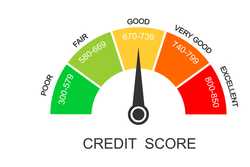Whether in the business realm or the personal, keeping track of finances can feel like a full-time job—and for professional bookkeepers, it is. Fortunately, today’s digital market is flooded with financial management programs that have taken consumers and entrepreneurs out of the age of pen-and-paper budgeting. With a history spanning four decades this year (the program was first launched for the now-obsolete operating system MS-DOS in 1984), Quicken is one of the best-known names in the business, and its tools and features have kept up with the times.
Quicken will offer new customers up to 40% off the regular subscription price of its menu of personal finance products as of Jan. 25th, 2024, for a limited time. Discounts range from 17% to 40%, depending on the product, with annual savings of up to $52.80.
Please note that users who migrate to from Mint to Simplifi will get a 50% discount as of Jan. 5th, 2024. The 40% discount offer on Quicken's regular subscription will run in parallel.
Excelling in ease of use and offering automated-yet-customizable insights into spending and savings habits, Quicken has been used by more than 20 million members throughout its tenure. Here’s our take on how it stacks up against the competition today.
Quicken
Features
Simple interface to track spending and create a budget based on expenses
TIME’s Take
Quicken makes budgeting quick and easy. With a wide variety of features to help create clarity and ease concerning common personal finance goals and obstacles—along with tools aimed specifically at small business owners and landlords—Quicken can be a powerhouse program for both private consumers and entrepreneurs. Its specific blend of insights and options may be best suited to solopreneurs, freelancers, and other self-employed individuals, along with everyday consumers ready to take their financial mojo to the next level.
The program does, however, have some drawbacks.These include the lack of a free version, less-than-fully functional mobile apps, and discrepancies between its Windows and Mac desktop software programs, with less available for Mac users.
Who is Quicken best for?
- Solopreneurs, self-employed people, and landlords.
- Personal consumers looking for in-depth insights.
- Those who are comfortable with browser- and desktop-based tools (as mobile app functionality is lacking).
Pros and cons
Pros:
- Automated insights mean easier budget setup, and they are customizable to help set and track goals
- Investment tools include in-depth asset monitoring and return reports, especially for Windows desktop users.
- It has specific tools tailored for those managing rental properties and small business finances.
- Product tiers are available to serve a variety of different levels of usership and need.
Cons:
- It has automated features only on Simplifi, the web- and mobile-exclusive platform; the full version requires you to set up your budget manually.
- The Mac version lags behind the WIndows one.
- Mobile companion apps aren’t fully built out with all features.
- No free version is available.
Benefits
Automated insights on the Simplifi platform
Quicken’s Simplifi program—its least expensive option—is geared toward everyday consumers who are ready to take charge of their finances with as little hassle as possible in an attempt to save money. The platform analyzes your current income and spending habits to automatically generate a budget, which is less work- and time-intensive than building one out yourself. (Don’t worry; the line items and amounts are still customizable, so you can nip and tuck as you desire.)
You’ll also be able to easily track bills in one place, including monthly subscriptions, along with projected cash flow and spending alerts. You can even share your financial snapshot with a partner or an advisor.
While desktop versions (including Classic, Premier, and Deluxe) have less to offer in the way of automated budgeting and spending insights, they have far more functionality in the realm of creating tax reports—and, for Windows users, investment-planning tools. Desktop users can create multiple budgets (though they need to be set up manually) and also pay bills.
In-depth investment insights on desktop
While all Quicken tiers offer consolidated investment performance tracking, desktop users at the Deluxe level also get access to customizable portfolio views, and, if they’re on Windows, a capital gains estimator.
Premier-tier users unlock real-time quotes (which are also available on Simplifi), along with a host of forward-looking investment planning tools, including functionalities from Morningstar such as Portfolio X-ray. Unfortunately, the vast majority of these are not available for those using Mac OS.
Tools for landlords and entrepreneurs
Quicken Classic Business & Personal product includes entrepreneur-specific functionalities, such as invoicing, profit-and-loss reports, tax optimization, and more, along with all of its tried-and-true personal finance features. There are also functions that make it easy for property managers to track rent across multiple listings, send reminders, generate fees, maintain documentation (including leases), track occupancy rates, and more.
Multiple product tiers
From its pared-back Simplifi option, which functions exclusively on web browsers and mobile, to its multiple tiers of downloadable software for both Windows and Mac operating systems, Quicken has done a good job making its products available at a variety of different price points and functionalities.
Whether you’re just looking to ramp up your budgeting habits for the new year or starting a small business from scratch, chances are you can find a Quicken product with the utility you need at a price you can afford. (Even Quicken’s most expensive product, Classic Business and Personal, is billed annually at a cost of $9.99 per month.)
What can be improved about Quicken?
More automated insights on desktop software
While desktop users get more utility in the way of tax strategizing and investment planning, the automated insights that make Simplifi such a quick-start program could also benefit those at higher tiers. While customization is key for these robust tools, automated functionality could make setup even easier while still retaining the tailor-made feel.
Parity between Windows and Mac applications
Windows users have access to many Quicken features that Mac users don’t, even when paying for the same software tier. Especially given the number of creative professionals making a living on a freelance basis these days—and likely performing their work on Apple hardware—creating parity between the operating systems seems like a logical next step.
Fully functional companion apps
While Quicken does have functioning mobile apps for both Android and iOS—with a companion option for Classic users and a separate app for Simplifi members—the apps tend not to be as functional as their web or desktop counterparts. (The Android apps in particular are not well regarded, with ratings of 3.0 stars for the Classic Companion app and 2.8 stars for the Quicken Simplifi app on the Google Play store as of January 2024.)
Free or trial versions
Unlike some of its competitors, Quicken does not offer a free entry-level version of its program or even a free trial of its paid products. For thrifty budgeters hoping to try before they buy, this choice may move QuiQuickenken further down the list.
How does Quicken compare?
While Quicken stands out from the crowd of everyday budget and financial management apps due to its increased accounting and tax-optimization functionalities, its lack of a free or trial version impedes its growth. Additionally, Quicken’s customer service reputation rings in at an “average” rating of about 3.5 stars, whereas some of its competitors have higher levels of customer satisfaction.
|
| | Yes. You get 30 days before monthly charges ranging from $30 to $200 begin. | Yes. You get 14 days before an $8 per month charge begins. | Yes. You get a seven-day free trial for Premium membership, and free entry-level product is also available. | Yes. You get a 34-day free trial before paying $14.99 per month (or $8.25 per month billed annually). |
| Tax optimization strategies and reports are available for Quicken Classic users (with limited functionality on Simplifi). | Yes—accounting is QuickBooks’ bread and butter and its features are comprehensive—including receipt capture, cash-flow tracking, automated bookkeeping and more | It has a few tax-specific or report-generating functionalities. | It has a few tax-specific or report-generating functionalities, though tax-deductible transactions can be flagged in the app. | It has a few tax-specific or report-generating functionalities, though users can tag, flag, or categorize tax-related transactions. |
| | Yes—but focused on business expenses | | | |
Automatic payment tracking | | | | | |
| | | | | |
Quicken: In-depth review
When it comes to financial management, Quicken is something of a one-stop shop, offering everything from basic budgeting to tax atomization and automatically generated profit and loss (P&L) reports, depending on which tier you purchase. In other words, the software is comprehensive and, especially at the highest tier levels, packs a powerful punch for private consumers and small business owners alike.
Usability
Quicken is well known for its user-friendly interface, in which its array of tools is well integrated and easy to navigate. Especially on Quicken Simplifi, many functions are automated yet customizable, meaning it doesn’t take long to get set up, but you can spend as much time and energy as you want crafting a budgeting tool that’s suited to your specific needs.
Budgeting-tool options
From expense tracking (including all your subscriptions in one place, so you can easily see how much you’re spending each month on streaming services and gym memberships) to an automatically generated budget based on your income and current spending habits, Quicken has its budget function—arguably its core product—nailed. The product also seamlessly integrates investment and retirement tracking, as well as giving users other options, such as ignoring specific transactions in its accounting, tracking what’s left to spend and save each month, and, in the Classic, Premier, and Deluxe editions, the ability to create multiple budgets.
Technology
Although Quicken as a company is a dinosaur compared with budgeting systems launched in the new millennium, it’s done well to keep up with current technology. Many of its features are automated, analyzing real-time spending data and tracking your income in order to determine how much money is left over to meet financial goals and obligations (as well as automatically generating certain types of reports).
QuiQuickencken also integrates tools from third-party companies, such as Morningstar, to make investment planning less stressful. Users do have some complaints, however, about their mobile app functionality, and Mac OS software again lacks certain features available to Windows users.
Costs
Unlike many other companies in this space, Quicken does not offer a free product or trial. However, its most basic service starts at less than $4 per month, (less than $50 per year), which puts it in the realm of affordability for a wide range of consumers. For small business owners and entrepreneurs, its $9.99-per-month product offers significant savings over popular competitors such as QuickBooks.
Customer service
Quicken enjoys a customer service rating of 3.5 out of 5 stars on TrustPilot, indicating that its users are, on average, satisfied with the service they receive. Quicken users can reach customer service by phone or chat (with live wait times listed right on the support page), and there’s also a thriving online community of users who regularly answer each other’s questions.
Social features
While Quicken doesn’t have any ready-built social features, the platform does offer mobile apps at both the Simplifi and Classic tiers for both Android and iPhone users.
Security and reliability
Quicken utilizes a range of top-of-the-line security measures to safeguard your sensitive information, including:
In short, Quicken is legit, safe, and reliable, and while nothing is risk free when it comes to finances, the company has a long track record of keeping clients’ sensitive information safe.
Company reputation
In an increasingly digital world, Quicken has the kind of tenure few other digital-first companies can compete with: Its software was originally launched in 1984. The fact that Quicken is still a well-known name in the industry speaks to its reputation and reliability, and users rate it a reasonable 3.5 stars on Trustpilot, though it unfortunately has an F rating with the Better Business Bureau and is not BBB accredited.
Other services offered
Quicken is a financial management and budgeting platform through and through and does not offer other services. (The company Quicken Loans is now known as Rocket Mortgage and is a separate entity.)
How does Quicken make money?
Quicken utilizes a software-as-a-service (SaaS) business model and earns money by charging users a monthly fee that varies depending on the product tier you choose. It starts at $3.99 a month for Quicken Simplifi and ranges up to $9.99 for Quicken Classic Business & Personal.
Bottom line
With its array of tiers, ample customization options, integrated automations, and business-specific tools, Quicken is a worthy budgeting app for private consumers and entrepreneurs alike. Especially for freelancers, Quicken can make the job of separating business and personal expenses a much less challenging feat, as well as helping ease stress at tax time.
Quicken
Features
Simple interface to track spending and create a budget based on expenses
Frequently asked questions (FAQs)
Is Quicken being phased out?
No. As of January 2024 there are no plans to phase out Quicken. It has been operating since 1984 and was sold to Aquiline Capital Partners in 2021. (The seller was H.I.G. Capital, which purchased Quicken in 2016.) While the transition of ownership may come along with business structure and product changes, Quicken’s software is still well loved and used by many, so a phaseout doesn’t seem likely anytime soon.
Is it worth buying Quicken?
Only you can decide if a budget management software is worth your money, and it’s true that free and lower-cost alternatives are available both online and off. However, Quicken offers a large suite of tools and technology at costs as low as $3.99 per month (less than $50 per year), which many consumers do find worth the investment. It’s also a relatively low-cost option for entrepreneurs, solopreneurs, and freelancers looking to keep track of their business and personal finances.
How reliable is Quicken?
Quicken has a long and storied history in the personal finance space, with its initial launch dating back to 1984. The company enjoys average reviews (3.5 out of 5 stars) on customer rating sites such as TrustPilot, though it does score an F with the Better Business Bureau and is not BBB accredited. It’s worth noting that more than 20 million customers have used Quicken over the last 40 years, and many satisfied users continue to log on every day to track their spending, set savings goals, generate interest rate of return (IRR) and return on investment (ROI) reports, and more.
Empower Personal Wealth, LLC (“EPW”) compensates Time Stamped for new leads. Time Stamped is not an investment client of Empower Advisory Group, LLC.






